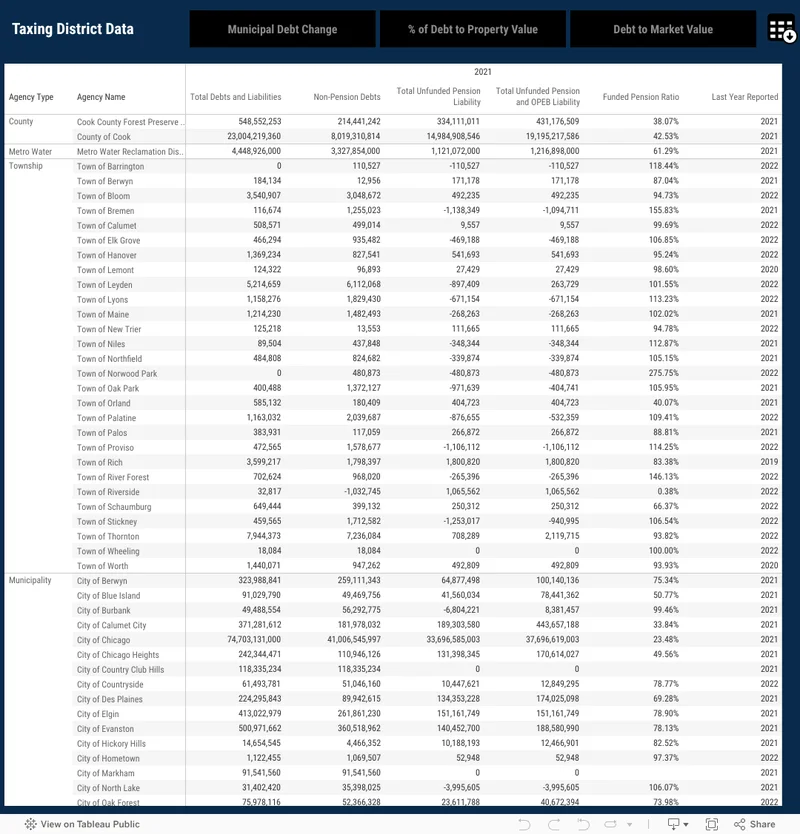Connecting Data to Wealth Creation
Connecting Data to Wealth Creation
Imagine a world where even the most complex bureaucratic processes are made more human, more accessible. That's the promise embedded in Cook County's Third-Party Notification program, and it's a testament to how technology, when used thoughtfully, can bridge gaps and strengthen communities.
The news coming out of Cook County, Illinois, might seem like local government minutiae at first glance: property tax bills delayed, technological overhauls gone awry, and the usual political jostling. But buried within these headlines is a story of genuine innovation and a commitment to safeguarding the most vulnerable members of the community.
Cook County Treasurer Maria Pappas's office has been running a program since 2005 that allows residents to designate a third party—a relative, friend, or even a community organization—to receive copies of delinquency notices before the annual tax sale. Think of it as a neighborhood watch for property taxes. It's a simple idea, but its potential impact is profound.
Why is this so important? Well, life happens. People get sick, they travel, they face cognitive decline, and sometimes, important notices get lost in the shuffle. Property taxes are a critical source of funding for local governments, yes, but more importantly, they're tied to something deeply personal: people's homes. Losing your home over unpaid taxes is a tragedy that can ripple through families and communities, and this program is a proactive measure to prevent that from happening.
This isn't just about sending out more mail; it's about creating a safety net of human connection in an increasingly complex world. It's about acknowledging that we all need a little help sometimes, and that technology can be a powerful tool for fostering that support. The program is especially helpful for senior citizens, people with disabilities, those with serious health issues, or individuals away from their homes for extended periods. It’s a lifeline extended through the digital realm, a way to ensure that no one falls through the cracks.

The fact that Cook County is proactively reaching out to prevent tax sales speaks volumes. It's a recognition that government isn't just about collecting revenue; it's about serving the people and protecting their interests. And while the county's property tax system has faced its share of challenges – delays due to a decade-old contract with Tyler Technologies, errors that could have led to incorrect bills – this program stands as a beacon of innovation and a testament to the power of human-centered design. According to Months Late, Second Installment of 2024 Cook County Property Tax Bills to be Due Dec. 15, property tax bills were delayed.
It's easy to get caught up in the technical details of property tax systems and government contracts, but let's not lose sight of the bigger picture. What Cook County is doing is essentially building a technological extension of the social contract. It's saying, "We understand that life can be complicated, and we're here to help you navigate it."
The program renews automatically and is free to all residential property owners. Under state law, there’s a $5 registration fee for nonresidential properties. You may designate only one person or entity to receive third-party notices, and you may cancel at any time.
Now, is this a perfect solution? Of course not. As with any technological initiative, there are potential risks. What happens if the third party is unresponsive? What about privacy concerns? These are valid questions, and they highlight the importance of ongoing evaluation and refinement. But the fact that Cook County is even asking these questions, is actively seeking ways to improve the system, is a sign of genuine commitment.
What if other counties, other states, other countries adopted similar programs? Imagine a world where governments proactively use technology to protect their citizens, to strengthen communities, and to create a more just and equitable society. It's a future worth striving for, and Cook County's Third-Party Notification program is a small but significant step in that direction.
The lesson here isn't just about property taxes; it's about the potential of technology to foster empathy and strengthen communities. And honestly, that is what gives me hope.